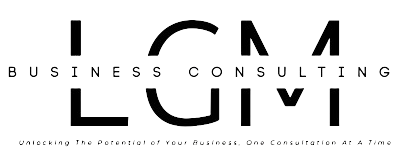In today’s fast-paced business environment, maintaining a healthy workplace is crucial for the success and sustainability of any organization. Human Resources (HR) operations play a pivotal role in fostering this environment by managing and optimizing the processes that impact employees’ daily experiences. Effective HR operations not only ensure compliance with legal standards but also promote a culture of well-being, productivity, and engagement. Here’s a closer look at why HR operations are so important in maintaining a healthy workplace.
1. Recruitment and Onboarding
The journey towards a healthy workplace begins with the recruitment and onboarding process. HR operations are responsible for attracting and hiring individuals who not only possess the necessary skills but also align with the company’s values and culture. A thorough and thoughtful onboarding process ensures that new hires feel welcomed, valued, and prepared to contribute effectively. This initial stage sets the tone for their entire tenure with the company.
2. Employee Engagement and Retention
Engaged employees are more productive, motivated, and likely to stay with the company long-term. HR operations implement strategies to boost employee engagement through regular feedback, recognition programs, and opportunities for professional growth. By fostering a positive work environment where employees feel heard and appreciated, HR can significantly reduce turnover rates and build a loyal, committed workforce.
3. Conflict Resolution
Conflicts are inevitable in any workplace, but how they are managed can make a significant difference. HR operations provide the framework for addressing disputes through mediation and conflict resolution strategies. By ensuring that conflicts are handled fairly and efficiently, HR helps maintain a harmonious work environment and prevents issues from escalating into more significant problems.
4. Compliance and Safety
Adhering to legal and regulatory requirements is essential for any business. HR operations ensure that the company complies with labor laws, health and safety regulations, and industry standards. This compliance protects the company from legal issues and fosters a safe and secure workplace for employees. Regular training and updates on policies help keep everyone informed and aligned with best practices.
5. Performance Management
Effective performance management is a cornerstone of a healthy workplace. HR operations develop and implement performance appraisal systems that provide constructive feedback and set clear expectations. By recognizing achievements and identifying areas for improvement, HR helps employees grow professionally and contributes to the overall success of the organization.
6. Employee Well-being
Promoting employee well-being is not just a nice-to-have; it’s a necessity for a healthy workplace. HR operations are instrumental in creating wellness programs that address physical, mental, and emotional health. From offering flexible work arrangements to providing access to mental health resources, HR can support employees in achieving a work-life balance that enhances their overall well-being.
7. Training and Development
Continuous learning and development opportunities are vital for keeping employees engaged and competent in their roles. HR operations are responsible for identifying training needs and organizing programs that enhance skills and knowledge. Investing in employee development not only boosts individual performance but also contributes to the company’s long-term success.
8. Culture and Inclusion
A healthy workplace is one where diversity and inclusion are celebrated. HR operations play a critical role in shaping the company culture by promoting inclusive practices and ensuring that all employees feel respected and valued. By fostering a diverse and inclusive environment, HR helps create a workplace where creativity and innovation can thrive.
Conclusion
HR operations are the backbone of a healthy workplace, ensuring that the processes and policies that impact employees are managed effectively. By focusing on recruitment, engagement, conflict resolution, compliance, performance management, well-being, training, and culture, HR operations create a supportive and productive work environment. Investing in robust HR operations is not just beneficial for employees; it’s essential for the overall success and sustainability of the organization. A healthy workplace is a thriving workplace, and HR operations are key to making that a reality.

